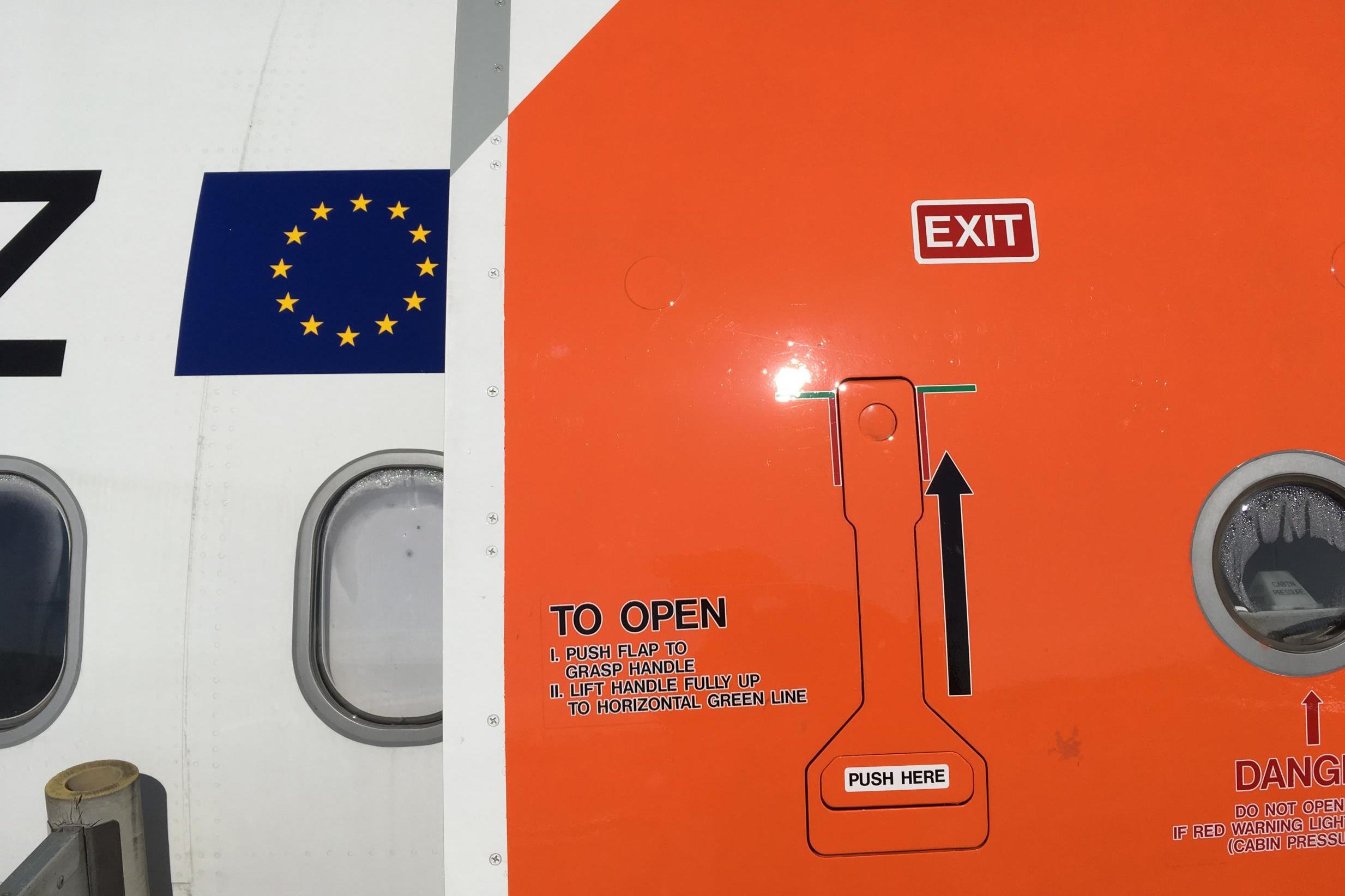easyJet profits surge on Monarch collapse, but airline warns of Brexit uncertainty
easyJet flew a record 88.5 million passengers in the year to end September, but cancelled 6,814 flights

Your support helps us to tell the story
From reproductive rights to climate change to Big Tech, The Independent is on the ground when the story is developing. Whether it's investigating the financials of Elon Musk's pro-Trump PAC or producing our latest documentary, 'The A Word', which shines a light on the American women fighting for reproductive rights, we know how important it is to parse out the facts from the messaging.
At such a critical moment in US history, we need reporters on the ground. Your donation allows us to keep sending journalists to speak to both sides of the story.
The Independent is trusted by Americans across the entire political spectrum. And unlike many other quality news outlets, we choose not to lock Americans out of our reporting and analysis with paywalls. We believe quality journalism should be available to everyone, paid for by those who can afford it.
Your support makes all the difference.Profits at Britain’s biggest budget airline have surged after the collapse of rivals such as Monarch and last winter’s Ryanair pilots’ shortages.
On revenues of almost £6bn in the financial year to the end of September 2018, easyJet reported profits before tax of £445m – up one-sixth on the previous year. The proposed dividend to shareholders is up 43 per cent to 58.6p.
The airline flew a record 88.5 million passengers, up one-tenth on the previous year, and filled 92.9 per cent of seats – meaning only 13 seats are empty on the average flight with an Airbus A320 jet.
Historically, airlines were content with a “load factor” of around 75 per cent.
Revenue per seat for easyJet was almost £62, and the airline made a headline profit of £6.53 on each seat – totalling £578m. But the airline took a £65m hit from “a change in approach to IT development” and the £40m costs involved in taking over the slots of the failed Air Berlin at Tegel airport in the German capital.
It also incurred £7m in Brexit-related costs, mainly due to the cost of re-registering aircraft in Austria.
The airline said that the 2016 EU referendum result has had “an ongoing negative impact on profit” due to the slump in sterling against the dollar and euro.
Over the year, overall capacity increased by 9.8 per cent, but only by 4 per cent in the UK.
The airline says it is “close to achieving majority EEA (excluding UK) ownership” of its European operation. At present 47 per cent of shares are held by EEA parties.
It has also been tuning its “bag pricing algorithms that better reflect demand” – in other words, asking passengers to pay more for checking in cases on popular flights. But easyJet said that it cancelled 6,814 flights, an average of 19 a day, due to air-traffic control strikes, particularly in France, capacity constraints due to air-air-traffic systems upgrades, and “weather events”.
Of flights that did take-off, on-time performance decreased by one per cent. One in four flights was delayed by 15 minutes or more, “primarily due to disruption”.
The airline says it will be targeting the business-travel market, with “a more personalised product offering including new business fares and bundles”.
It will also extend its current invitation-only loyalty programme, Flight Club, and has appointed its first head of loyalty. The expanded loyalty offering will be launched in 2020.
Johan Lundgren, easyJet’s chief executive, said: “Our strategy continues to ensure we are well positioned for the future. We have made considerable progress on our new initiatives in holidays, business and loyalty, which will enable us to grow profitably.
“While disruption continues to be a major challenge for the industry, we are investing in resilience to help to mitigate the impact on our customers.”
He indicated that easyJet has no interest in taking over Flybe, the UK airline which has put itself up for sale as a result of a cash crisis.
Join our commenting forum
Join thought-provoking conversations, follow other Independent readers and see their replies
Comments